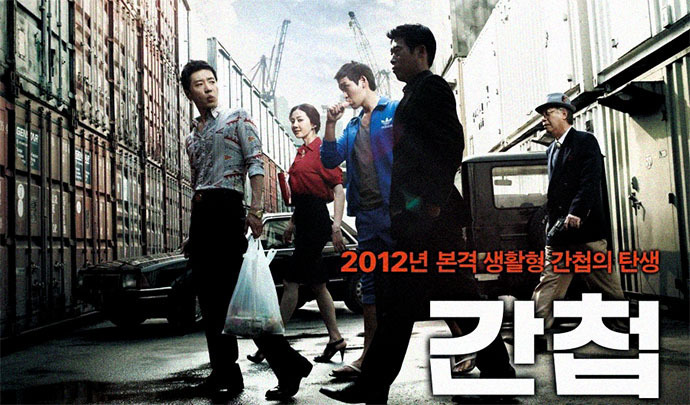This week one of South Korea’s most popular comedy sketch programs, Gag Concert, featured a skit about two Korean Chinese gang members attempting to extort money from an unsuspecting South Korean through a ruse known as “voice phishing”. Dressed in characteristically cheap clothing with unfashionable hairstyles, the hapless man and woman attempted to convince a South Korean man over the phone that money had been removed from his account and that they needed his account number to sort it out. However, their distinct Korean Chinese accents and frequent mistakes during the conversation gave them away, much to the amusement of the audience.
The movement of issues surrounding the presence of ethnic Korean Chinese people in South Korea from serious discussion to being the subject of comedy sketches follows an emerging trend over the last ten years. During this period discourse on otherwise sensitive topics including inter-Korean relations and most recently the North Korean defector phenomenon have inspired comedy material for the first time. These changes have been seen by some as signs of an identity shift towards a more inclusive view of North Korea in the South, as well as evolving ideas about what it means to be South Korean.
This week one of South Korea’s most popular comedy sketch programs, Gag Concert, featured a skit about two Korean Chinese gang members attempting to extort money from an unsuspecting South Korean through a ruse known as “voice phishing”. Dressed in characteristically cheap clothing with unfashionable hairstyles, the hapless man and woman attempted to convince a South Korean man over the phone that money had been removed from his account and that they needed his account number to sort it out. However, their distinct Korean Chinese accents and frequent mistakes during the conversation gave them away, much to the amusement of the audience.
The movement of issues surrounding the presence of ethnic Korean Chinese people in South Korea from serious discussion to being the subject of comedy sketches follows an emerging trend over the last ten years. During this period discourse on otherwise sensitive topics including inter-Korean relations and most recently the North Korean defector phenomenon have inspired comedy material for the first time. These changes have been seen by some as signs of an identity shift towards a more inclusive view of North Korea in the South, as well as evolving ideas about what it means to be South Korean.
Try unlimited access
Only $1 for four weeks
-
Unlimited access to all of NK News: reporting, investigations, analysis
-
Year-one discount if you continue past $1 trial period
-
The NK News Daily Update, an email newsletter to keep you in the loop
-
Searchable archive of all content, photo galleries, special columns
-
Contact NK News reporters with tips or requests for reporting
Get unlimited access to all NK News content, including original reporting, investigations, and analyses by our team of DPRK experts.
Subscribe
now
All major cards accepted. No commitments – you can cancel any time.











